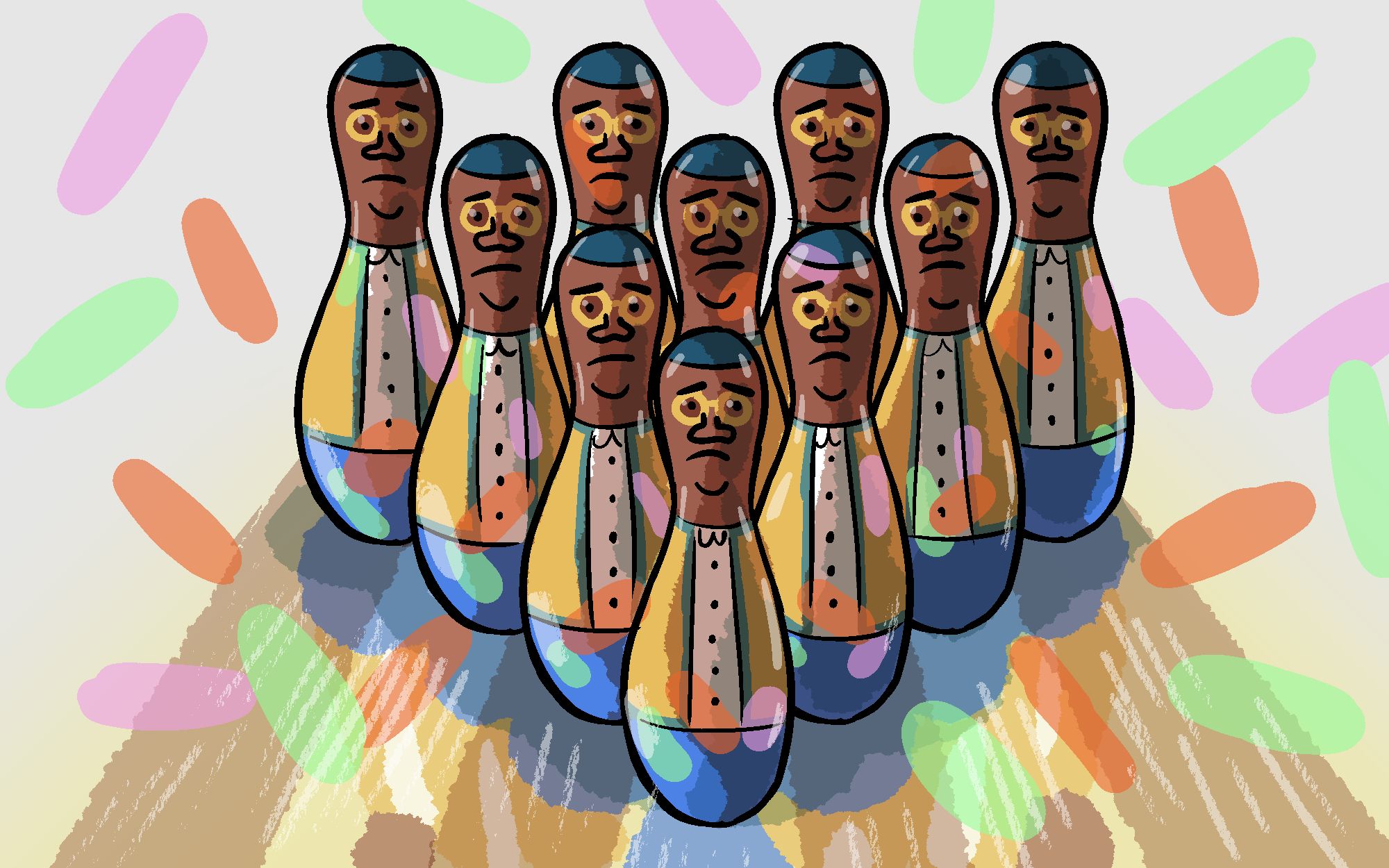It wasn't even noon and I was already on my fifth backhanded compliment of the day.
I stepped into our Seattle office wearing a navy blue suit from SuitSupply, tailored to fit me like a glove. The occasion? A benefit dinner I was attending after work. Since it was billed as an elegant affair, I knew better than to show up in my usual threads. This outing required my Sunday best—on a Thursday. But once I strolled through the revolving doors of my workplace, my confidence quickly dissolved into mild discomfort.
“Whoa!” said Braden on the elevator ride up to our company’s floor. He was not reciting the Black Rob song.
“Look at you!” Janice gasped as I pulled a seltzer from the fridge.
“You clean up nice!” added Todd, making a pit stop to lean against the wall of my cubicle instead of parking at his own. “What’s the occasion, man?”
If my life were a ’90s sitcom, here’s where a vinyl record would scratch, the frame would freeze, and I’d break the fourth wall with a voiceover.
We’ve all heard the term “clean up nice” one time or another. It’s a compliment that could be applied to anyone who ditches casual garb and decides to dress to the nines, exuding responsible adult rather than grown child. Yet as a Black man, the phrase hit a little different when deployed by my White colleague. Instead of flattery I felt like a damn unicorn, and not necessarily in a good way. With those aforementioned three words, my coworkers’ well-meaning excitement around my couture made me consider how I was usually perceived professionally. More specifically, whether I’d ever garnered due respect before deciding to rock a two-piece, no biscuit.
Maybe it never occurred to my colleagues that I actually own a suit, let alone know how to wear one properly. Which makes me wonder if they’ve ever similarly doubted my leadership abilities and proficiency with running marketing campaigns based on my threads.
Since I began working in corporate America, I’ve been skeptical of casual dress codes. The way I see it, the unfortunate reality of needing to be twice as good applies here, too. But usually once I’ve got some tenure at a job and become comfortable with my colleagues, I’ll loosen up a bit. (My recent promotion to senior manager of marketing was also reassuring.) With time, my appearance has become more laxed. While I’d never pull up in hoochie daddy shorts, I've found a happy medium between style and comfort.
Still, after the day I dared to sport a suit, I realized my casual wardrobe choices were in stark contrast to those of my White counterparts. Sure, we all rock cookout chic—but these are two different cookouts. While they tend to favor classic American style—Lacoste polo knit shirts, regular-fit Levis, Allbirds—my usual drip consists of an Essentials hoodie or tee, some distressed jeans, and my latest Nike SNKRS app score.
The intent of my casual outfit choices was to be comfortable and blend in, but perhaps I was actually looking cool. Since even non-threatening Black men look cool under the White gaze, maybe it never occurred to my colleagues that I actually own a suit, let alone know how to wear one properly. Which makes me wonder if they’ve ever similarly doubted my leadership abilities and proficiency with running marketing campaigns based on my threads.
Does this mean I'm reassessing my casual workday wardrobe? Absolutely. Does that make me a sellout? I don't know. What I do know is that my seat at the table of middle and upper management can be beneficial to other melanated folks climbing the corporate ladder at my company and beyond—especially if I can make my fellow managers and leaders see me as one of them. To do this, a lot of us Only Blacks find ourselves code switching, but that goes beyond how we speak; it also applies to how we look. I've been hassled at too many casual bars and restaurants by bouncers because I took "come as you are" to mean I can wear my Timberlands only to be reminded—once again—there's a different set of rules, expectations, and presumptions for us. I’m beginning to believe this is the case in the workplace, too.
Of course, I could be overthinking here. It’s just a damn suit, after all, and it’s human nature to respond to the unusual. But sometimes, perception can be reality. Bottom line: I don't want the next time I throw on traditional business attire to be such a shock to my colleagues. If that means I have to ditch Jerry Lorenzo for Ralph Lauren, then Polo me down to the socks.


